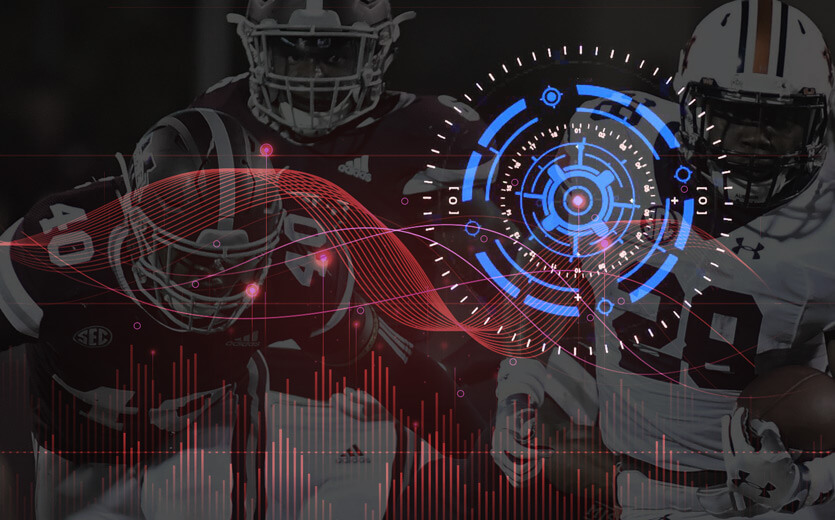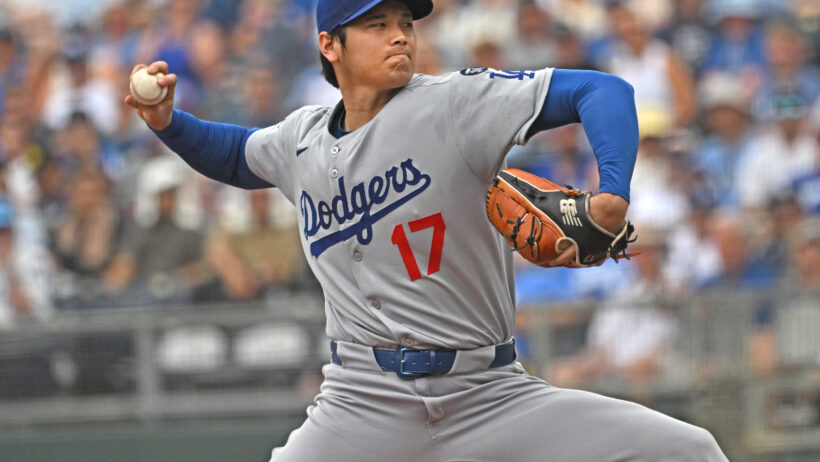3 College Football Betting Strategies To Help You Win Big

If you know the basics behind how to bet on college football, you’re going need some specific tips on how to win at it.
College football betting is a different animal from its NFL counterpart, and there are some general strategies that you can use to help you win big on NCAA football matchups when college football season rolls around.
How To Pick a College Football Betting Strategy for Success
When it comes to betting on college football, there are a number of classic strategies bettors can lean on at the best college football betting sites: moneyline bets, point spread bets, parlay bets, futures bets, prop bets—just to name a few.
But if you really want to master the college football betting system, you need some sound advice that can help you get there. To get the sweet payout you’re looking for, simply wagering on your favorite college football teams won’t be enough. If you’re Arizona fan, for example, you still need to look around the best opportunities to win with other teams. Otherwise, what’s the point of making a bet in the first place?
So what are these magical college football tips for sports betting, you ask?
The best way to built a successful college football betting strategy is to pay attention to the details. Knowing what coaches beat the spread in the past, keeping an eye out for advanced statistical disparities, and early-season matchups can all contribute to your wagering success.
College Football Betting Tip #1: Bet on Coaches Who Beat the Spread
When betting on college football games, your first thought might be to look at the players on the field. That, of course, is not a bad strategy for sports bettors, but we recommend looking just as hard at the coaches.
It should come as little surprise that the best coaches in CFB are not only good at winning games and claiming national championships, but also excel in covering the spread. Nick Saban was 128-103-3 against the spread as the coach at Alabama, and that includes going 3-8-1 in his first season. The Tide were 7-5 ATS in the first season without him.
Jim Harbaugh closed out his Michigan career on an incredible run against the number, going 27-8-2 in his final three seasons. To hammer that point home, the Wolverines were 1-5 ATS during Harbaugh’s suspensions. Is this where we mention Connor Stalions? Maybe.
So, who are the coaches that most consistently beat the spread now? Based on public perception of his team and the general thought they’re consistently overrated, one might be surprised to see that Marcus Freeman is the best coach ATS since he took over at Notre Dame before the 2022 season. Freeman is 25-11-2 through the 2024 regular season, including a 9-2-1 mark this season.
Oregon’s Dan Lanning is also great against the spread, as he’s 25-14-1 over that same timeframe.
Looking for a longer track record? Try Penn State’s James Franklin, who is 102-74-1 as a head coach at Penn State and Vanderbilt. Yes, that one surprised me, too.
If you’re looking for up-and-comers (and Freeman and Lanning aren’t enough for you), Indiana head coach Curt Cignetti is 24-18-1 in his time at James Madison and now with the Hoosiers. He was 9-3 at Indiana in his first season.
Arizona State’s Kenny Dillingham was 11-2 in his first season as a head coach, and while that could be a fluke with the Sun Devils having been massive underdogs to start the season, remember that some of that Lanning record at Oregon also includes Dillingham as offensive coordinator.
NCAAF Betting Tip #2: Look for Advance Stat Anomalies
We live in the golden age of information sharing, and no matter your feelings on the benefits or detriments of that to society, there’s no debate about how it has helped bettors become more knowledgeable about college football.
Advance statistics such as SP+, FEI, FPI, Sagarin, Colley Matrix, etc., are easily accessible, allowing you to take a deep dive into a team without ever having watched it play.
For years, oddsmakers at sportsbooks across the country have had access to their own numbers, while — unless you were a sharp bettor with your own formula — most bettors were left with simply watching games or combing through boxscores when it came time to make their college football picks.
While those formulas still exist for those drawing up lines, you’ll notice how similar they are to those publicly available advanced numbers each week. But that’s not always the case.
Every once in a while, that spread for Texas vs. Oklahoma is way out of touch with what SP+ thinks. Or maybe the total in Georgia vs. Miami is more than a touchdown lower than where FEI has it.
The advanced numbers aren’t always right, but their hit rates are much higher than most college football bettors. So, at the very least, take a little deeper look into a matchup with that type of disparity.
CFB Betting Tip #3: Look For Early-Season Value
There’s serious value to be found in early-season games involving much-hyped teams. We watch a spring game, review old bowl game or playoff footage, and convince ourselves that this is Tennessee’s year. Early in the year, the Volunteers end up with huge lines against decent but less exciting teams.
The truth is we don’t know: we don’t know how the loss of receiver X will affect quarterback Y, how important a graduated lineman was to the running game, how the hiring or firing of staff will affect a team.
All of those new faces from the Transfer Portal are sure to make an impact, but will it take time? Is Ohio State going to be favored by too much while a QB who has come up in a certain system for three years gets accustomed to a new one?
Basically, DraftKings, FanDuel and the rest are trying to figure out how all of these changes will impact a team as much as you are in the opening weeks, so it behooves you to take advantage until they do.
Increase Your Knowledge, Increase Your Bankroll
Gaining an edge on your sportsbook isn’t easy, and strategies for hitting (or exceeding) the vaunted 52.4% winning percentage that sharps hold as a standard isn’t easy.
We’re here to help you along the process of growing your bankroll with our sharp strategy guides, where we cover everything from the most rudimentary sports betting strategies to the application of more complex mathematical systems.

Evergreen Writer/Editor; Sportsbook Expert
With nearly two decades of experience in sports media, Paul Costanzo turned his professional attention to sports betting and online gambling in January of 2022. He's covered every angle of the industry since then, managing and creating content for PlayMichigan and The Sporting News, and now SBD.



